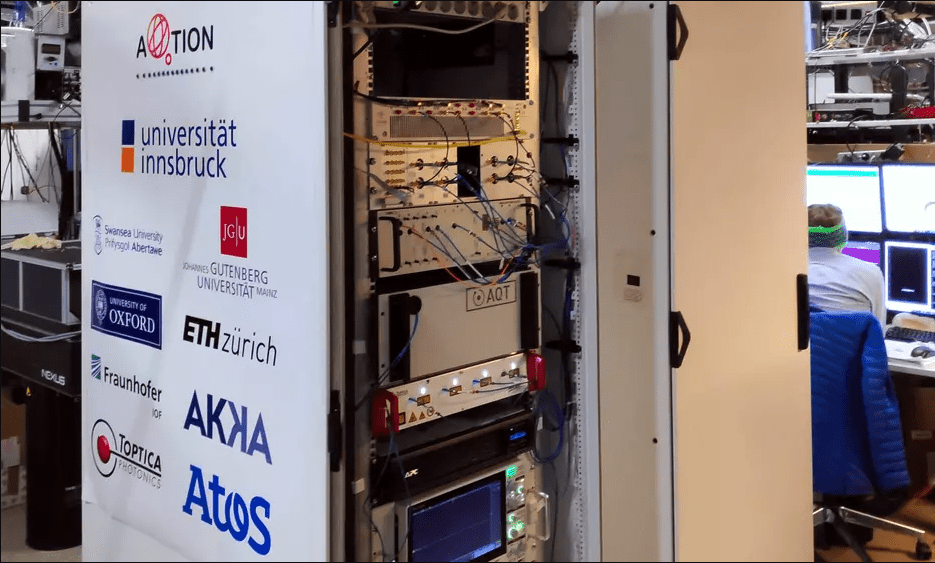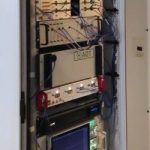Compact Ion Trap Computer Key Development for the Quantum Data Center

An Austrian team at University of Innsbruck announced they’ve built a demonstrator for an ion trap quantum computer small enough to fit into 2, 19-inch server racks. The development is an important step toward quantum data centers and proving a secure alternative to quantum cloud computing.
“Our quantum computing experiments usually fill 30- to 50-square-meter laboratories,” Thomas Monz of the University of Innsbruck said about the milestone. “We were now looking to fit the technologies developed here in Innsbruck into the smallest possible space while meeting standards commonly used in industry.”
Indeed, this compact ion trap quantum computer is petite compared to the IBM System One recently deployed in Stuttgart, Germany, which, while beautiful, was large and difficult to assemble, particularly under COVID-19 travel restrictions.
The Austrian team explained their smaller quantum computer footprint doesn’t sacrifice functionality.
“We were now looking to fit the technologies developed here in Innsbruck into the smallest possible space while meeting standards commonly used in industry,” Christian Marciniak from the Innsbruck team said. “We were able to show that compactness does not have to come at the expense of functionality.”
The compact ion trap installed in a vacuum chamber was developed by University of Innsbruck spinoff Alpine Quantum Technologies and the Austrian Academy of Sciences. Other components were from Applied Optics and Engineer in Jena and TOPTICA Photonics in Munich, Germany.
Soon, the team anticipates the compact quantum computer will be programmable online. The system already achieved the goal of 24 functional qubits.
“By next year, we want to be able to provide a device with up to 50 individually controllable quantum bits,” Monz added.
Lawrence Gasman, founder and president of Inside Quantum Technology explained the development of small quantum systems for use in data centers is part of a larger trend he has been predicting for some time.
“Depending on pricing they will pose a competitive challenge to quantum clouds and serve the needs of those who want to have complete control over their quantum facilities and may serve as central controllers in sophisticated automation systems for factories, traffic control, etc,” Gasman said. “ Such data center quantum computers aren’t here yet, but will expand the market for quantum computers by at least an order of magnitude.”



















